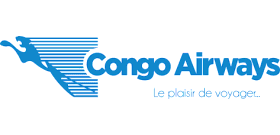 DRC Aviation Restructured: Air Congo Takes Flight
DRC Aviation Restructured: Air Congo Takes Flight
The Congolese aviation sector is undergoing a significant transformation. Congo Airways’ operations were suspended in April 2025 due to financial challenges, leaving a gap in the market. This has led to the Congolese government focusing on Air Congo, a joint venture with Ethiopian Airlines. This partnership signifies a shift towards a new model of aviation development in Africa, leveraging the expertise of an established international carrier.
For travel agents, this change presents both challenges and opportunities. The immediate impact is felt in regional air connectivity, with fewer flight options available. Travel agents are now adapting by exploring alternative routes, often involving longer travel times and increased costs. Analysis suggests ticket prices could increase by 25-35% due to the need for connecting flights or premiums on remaining direct routes. The financial impact on the market is substantial, with Congo Airways estimated to have lost \$10 million in revenue in just two months.
Air Congo, operating with two Boeing 737-800s, has stepped in to fill the void. The airline currently serves seven key domestic airports, including Kinshasa, Lubumbashi, and Goma. While Air Congo’s current daily seat capacity is lower than Congo Airways’ previous capacity, the partnership with Ethiopian Airlines offers access to a modern fleet, established operational systems, and a wider route network. This is expected to improve long-term sustainability and reliability.
This situation highlights a growing trend of African aviation partnerships. Several African nations are partnering with international carriers like Ethiopian Airlines to revitalize their national airlines. These joint ventures offer potential solutions to financial and operational challenges faced by state-owned airlines, providing access to capital, expertise, and wider market reach. However, questions remain about national sovereignty and the development of local aviation capacity.
Travel agents need to be flexible and strategic in this evolving landscape. Staying informed about airline partnerships, route changes, and market developments is crucial. Building relationships with multiple carriers and offering diverse travel packages can help mitigate disruptions. The projected market share distribution suggests Air Congo will capture a significant portion of the market, with other carriers absorbing the remainder. Travel agents who adapt quickly and understand these market dynamics will be best positioned for success.
The Air Congo model is being closely watched as a potential blueprint for other African carriers. Its success will depend on its ability to deliver reliable service, expand connectivity, and contribute to economic growth. The balance between leveraging international expertise and developing local capacity will be a key factor in the future of African aviation.
The transition from Congo Airways to Air Congo marks a significant shift in the DRC’s aviation sector. Travel agents must adapt to these changes to continue providing seamless travel experiences for their clients. This period of transition presents both challenges and opportunities, requiring travel professionals to stay agile and responsive to market dynamics.
